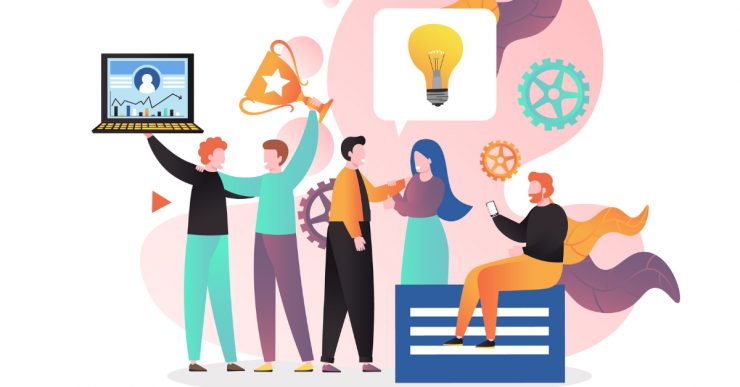The world is moving at a rapid pace and people are increasingly opting for various ways to stay healthy and in shape. Staying mentally strong can have a significant impact on the emotional, social, and psychological well-being of an individual.
At the workplace, too, the M-barrier has been breached with organisations now trying to create a conducive environment that fosters good mental health. Companies are also bringing changes at the policy level. However, are the (policy) changes enough?

More Conversations On Wellness
In India, while conversations surrounding mental health were earlier restricted to the confines of large private organisations, now it has entered almost every workplace. Support systems, access to mental wellness experts, emphasis on work-life balance, and mental wellness holidays are among the many initiatives undertaken by organisations to ensure that their staff are physically and mentally healthy.
But, how effective are these measures?
Rishabh Tandon, Director of Human Resources, Crowne Plaza, believes that organisations and HR leadership have evolved when it comes to their approach towards mental well-being. “HR leadership has ignited the awareness of mental health across all kinds of the workforce. From colleagues at the associate level to the executive committee member, all have a fair amount of knowledge in the mental wellness space now. Most of the progressive and evolved HRs have taken the expertise from EAP (Employee Assistance Program) services on emotional and mental health. The same is yielding results through better work-life integration and appreciation for the workplace. For consistent wins in this space, training and re-training will play a vital role,” Tandon says.
Now, more than ever organisations are prioritising employee mental health for an assortment of reasons that include enhancing productivity and helping staff to foster a balance between professional demands and personal life. Organisations are encouraging employees to take adequate breaks, and engage with life outside of work. Several organisations have also initiated leisure and recreation programmes aimed at promoting wellness.
“Employee well-being is today one of the top priorities in organisations as a result of this and everyone moving from home to office. With quiet quitting, productivity paranoia, absenteeism, presenteeism, and attrition dominating the trend, employers have realised that poor mental health directly impacts employee productivity. As a result, conversations about de-stigmatising mental health have become more important in recent years,” Prakriti Poddar, Global Head, Mental Health, Wellbeing, RoundGlass, says.

Pandemic Mental Health
The outbreak of the Covid-19 pandemic, too, pervaded the organisational set-up with employees facing mental health woes. In 2020, a survey conducted by The7thFold, a well-being firm, revealed that as many as 36 per cent of Indian employees are suffering from mental health issues and as many as 50 per cent were constantly worried about an uncertain future.
“The pandemic has played a significant role in the mental wellness of various generations of the workforce. Our workforce at Engaged Strategy has a mix of Gen Xers, Gen Ys and Gen Zs and the impact has been quite a learning phase for us in crafting more empathetic HR policies. While the Gen Xers and Gen Ys were quite comfortable with the changes that the pandemic induced, our Gen Z staff felt quite lost in the initial months. Their focus was divided, and some even felt trapped among the four walls of their house due to the lack of social interaction. They looked visibly depressed and we found this impacting their countenance and their work output quite significantly, which resulted in us taking some serious action to ensure that they bounced back mentally healthy,” says Linda Roberts, Head of HR, Engaged Strategy.
The increasing involvement of companies with initiatives related to mental health and wellness has also in a way dismantled many preconceived notions and taboos. This has triggered a positive chain of actions, as organisations acknowledging the significance of mental health are creating much-needed awareness among staff and bigger communities.
“To say that the past couple of years has been tumultuous for the entire world, would be an understatement. However, the disruption and trauma all of us have collectively witnessed is not without its silver lining as this has markedly contributed to normalising mental health challenges at work and somewhat easing the stigma associated with it. That said, a lot of ground still needs to be covered,” Poddar adds.

The Long Road To Recovery
While companies are taking note and engaging with staff in unique ways, it seems the mental health woes among staff owing to the pandemic and the looming uncertainty are far from over.
Rahul Bhalla, Co-Founder and CEO, of Latin Quarters, feels that the world is witnessing a cultural shift in terms of perspectives. While the psychological aftermath of the pandemic has impacted employees adversely, it has also in a way given them the courage to face the situation.
“After Covid-19, mental health is no longer considered a taboo and employees are shedding their inhibitions to discuss various personal as well as professional concerns with fellow employees and management. The psychological aftermath of the pandemic has adversely affected employees on both professional as well personal fronts. Employees are still coping with the switch in the working model from remote to full-time and adaptability issues are a cause of concern for everyone. The personal loss, as well as professional setback in terms of remuneration or job loss, has created a sense of insecurity amongst employees is visible,” says Bhalla.
Developing an apt policy framework to ensure enhanced mental and physical wellness among employees will be an ongoing process for companies. However, small steps like nurturing a positive team-building exercise, celebrating professional and personal accomplishments, leisure activities with teams, in-house counselling sessions and timely employee feedback can have a far-reaching impact on the organisation’s growth.
It's never too late to embark on a fitness regime or start practising mindfulness. Any activity that fosters mental well-being will eventually contribute to a productive and fulfilling life.
Source: economictimes.indiatimes.com








